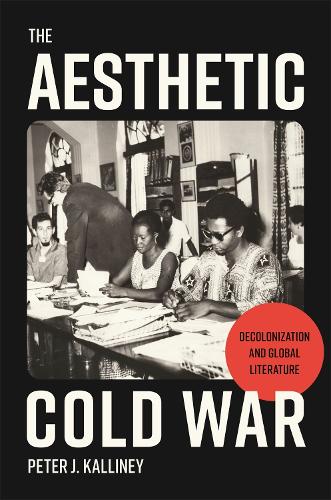
The Aesthetic Cold War: Decolonization and Global Literature
(Hardback)
Available Formats
Publishing Details
The Aesthetic Cold War: Decolonization and Global Literature
By (Author) Peter J. Kalliney
Princeton University Press
Princeton University Press
10th January 2023
United States
Classifications
Tertiary Education
Non Fiction
Literary studies: c 1900 to c 2000
Geopolitics
Philosophy: aesthetics
809.93358
Physical Properties
Hardback
336
Width 156mm, Height 235mm
Description
How decolonization and the cold war influenced literature from Africa, Asia, and the Caribbean
How did superpower competition and the cold war affect writers in the decolonizing world In The Aesthetic Cold War, Peter Kalliney explores the various ways that rival states used cultural diplomacy and the political police to influence writers. In response, many writers from Africa, Asia, and the Caribbeansuch as Chinua Achebe, Mulk Raj Anand, Eileen Chang, C.L.R. James, Alex La Guma, Doris Lessing, Ngg wa Thiong'o, and Wole Soyinkacarved out a vibrant conceptual space of aesthetic nonalignment, imagining a different and freer future for their work.
Kalliney looks at how the United States and the Soviet Union, in an effort to court writers, funded international conferences, arts centers, book and magazine publishing, literary prizes, and radio programming. International spy networks, however, subjected these same writers to surveillance and intimidation by tracking their movements, tapping their phones, reading their mail, and censoring or banning their work. Writers from the global south also suffered travel restrictions, deportations, imprisonment, and even death at the hands of government agents. Although conventional wisdom suggests that cold war pressures stunted the development of postcolonial literature, Kalliney's extensive archival research shows that evenly balanced superpower competition allowed savvy writers to accept patronage without pledging loyalty to specific political blocs. Likewise, writers exploited rivalries and the emerging discourse of human rights to contest the attentions of the political police.
A revisionist account of superpower involvement in literature, The Aesthetic Cold War considers how politics shaped literary production in the twentieth century.
Reviews
"Kallineys book is an intriguing read for those interested in understanding the Cold War and situating the relationship between the state and anticolonial writers."---Christina Obolenskaya, LSE Review of Books
Author Bio
Peter J. Kalliney is the William J. and Nina B. Tuggle Chair in English at the University of Kentucky. His books include Cities of Affluence and Anger, Commonwealth of Letters, and Modernism in a Global Context.
